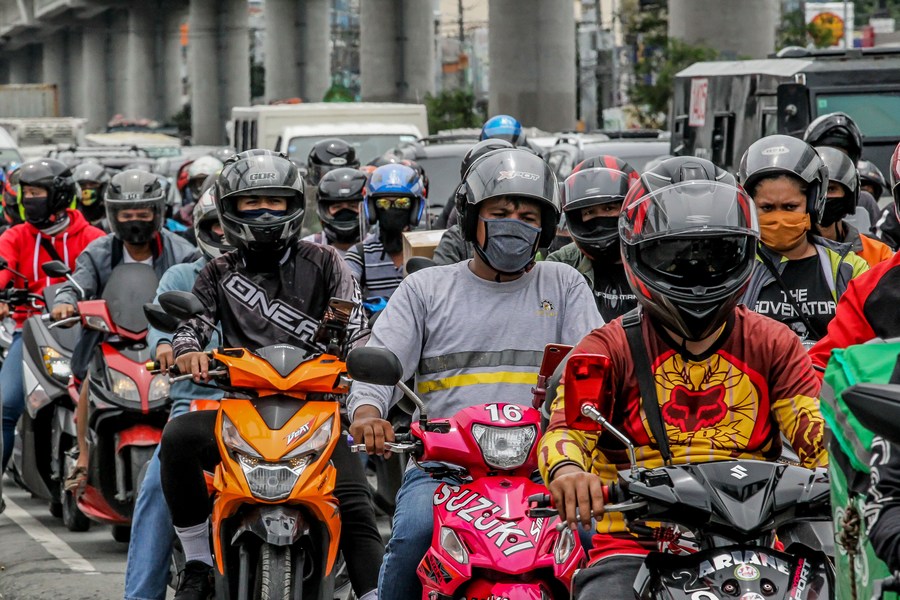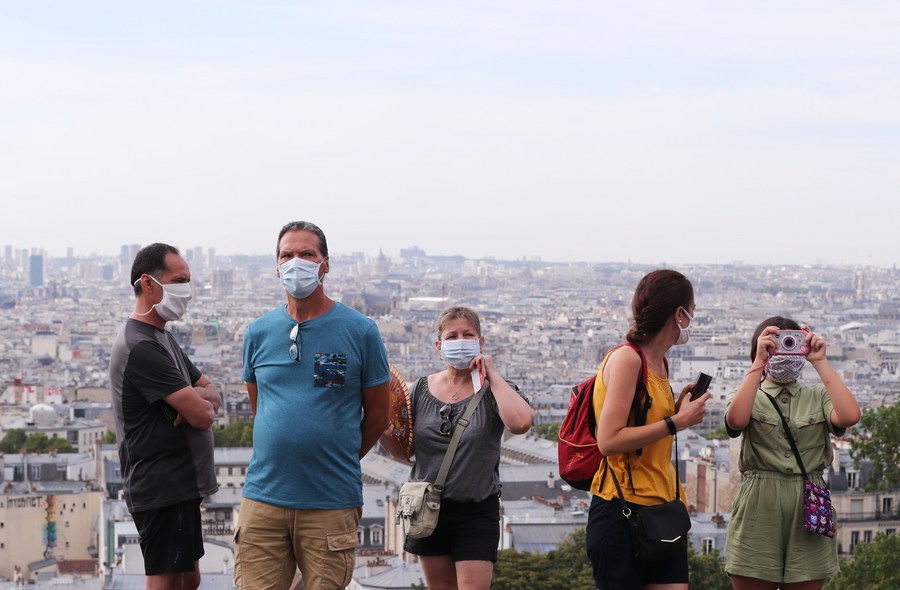Video: UN Secretary-General Antonio Guterres on Aug. 12, 2020 calls for a comprehensive approach to peacebuilding and sustaining peace amid challenges posed by the pandemic. (Xinhua)
"COVID-19 is a human tragedy. But we can mitigate the impacts by the choices we make," says Antonio Guterres.
UNITED NATIONS, Aug. 12 (Xinhua) -- UN Secretary-General Antonio Guterres on Wednesday called for a comprehensive approach to peacebuilding and sustaining peace amid challenges posed by the pandemic.
"More than ever, multidimensional, coordinated and conflict-sensitive responses and whole-of-society approaches are crucial. They are key to ensuring that peacebuilding and sustaining peace initiatives go hand-in-hand with inclusive and sustainable development, anchored in the protection and promotion of human rights, gender equality, and the commitment to leave no one behind," he told the Security Council.
"COVID-19 is a human tragedy. But we can mitigate the impacts by the choices we make."
First, responses to the pandemic must be conflict-sensitive, starting with a multidimensional analysis that looks at how the pandemic affects underlying risks that drive conflict, he told an open debate of the Security Council on pandemics and the challenges of sustaining peace.

Motorcyclists wait in line at a quarantine checkpoint in Manila, the Philippines, on Aug. 12, 2020. (Xinhua/Rouelle Umali)
Second, inclusion is critical in the design of humanitarian and development responses to pandemics. Dialogues, especially with communities and marginalized groups, help rebuild trust and enhance social cohesion.
"In particular, we must find avenues for far stronger engagement with women's groups who play such a pivotal role in securing peace at the community level. They are also critical rebuilders of trust which is often absent in fragile and fractured communities, and without which public health messaging and behavioral change to slow the pandemic simply does not take root."
Young people are also essential to peacebuilding solutions, he said.
Third, sustaining peace requires an integrated and coherent approach through strong collaboration across humanitarian, development and peace actors, he said.
There is also a need to build ever-stronger partnerships with governments, regional and sub-regional organizations, the private sector and civil society actors. International financial institutions must integrate sustaining peace as a priority and as a core element of COVID-19 recovery strategies and building back better, he said.

People wearing masks visit the Montmartre in Paris, France, Aug. 10, 2020. (Xinhua/Gao Jing)
Fourth, there is a need for flexibility and a tailored approach to peacebuilding needs in the context of the pandemic, he said.
The Peacebuilding Fund has swiftly adjusted its work on the ground and identified new areas of support in response to COVID-19. Unfortunately, the demand for the fund continues to outpace supply, said Guterres.
He warned of three key dangers brought about by the pandemic: the erosion of public trust, the destabilization of the global economic order, the weakening of the social fabric.
The pandemic threatens not only hard-won development and peacebuilding gains, but also risks exacerbating conflicts or fomenting new ones, he said.
The challenges of this pandemic underscore like never before the imperative of coherent, multi-dimensional and cross-pillar responses along with the integrated logic of the Sustainable Development Goals, he said. "We know that conflict-sensitive and coherent, preventative approaches that help address the health and humanitarian crisis will help deliver sustainable peace." ■


